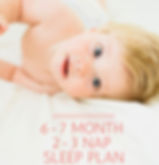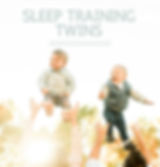SLEEP GUIDES
the most affordable way to good sleep
Take the guesswork out of sleep training. Little Dreamers' Sleep Training Guides will guide you through the process of sleep training with step by step instructions for the exact age of your little dreamer and with the sleep training method of your choice. No more second guessing if you are doing it right! Plus with each guide you have the options to add on additional support (call or text) personally from Marietta or Kelly. These guides are the best way to have it all and save! Learn more below! Reduced pricing available as well as scholarship opportunities for a sleep guide! Information below!
All you need to know before you buy!

WHAT REAL MOMS SAY

Alicia
We're so thankful to have found Marietta and
Little Dreamers. Our 1 year old was experiencing very early wakings and we were desperate to gain 30, 45, or even 60 extra minutes of sleep in the mornings. Not only did Marietta's suggestions achieve exactly that, but her sleep plan gives us peace of mind that we are setting up our daughter for sleep success.

Heather
This Sleep Guides saved this sleep exhausted mom! I didn't have the time to read an entire book and interpret what to do for my child. The guide told me exactly what to do for the specific age of my child and and it worked. We went from waking multiple times in the night to sleeping through the night and naps went from being held for every nap to taking good, age appropriate naps in her crib!

Katelyn
The Sleep Guides made sleep training much easier. I knew exactly what to do and knew I wasn't making any mistakes that would cost us our progress or come back later to haunt us. I loved that there was information in the guide about attachment and how to sleep train while focusing on strengthening the attachment with my baby. Thes best part is it worked! I followed the guide and sleep came.












